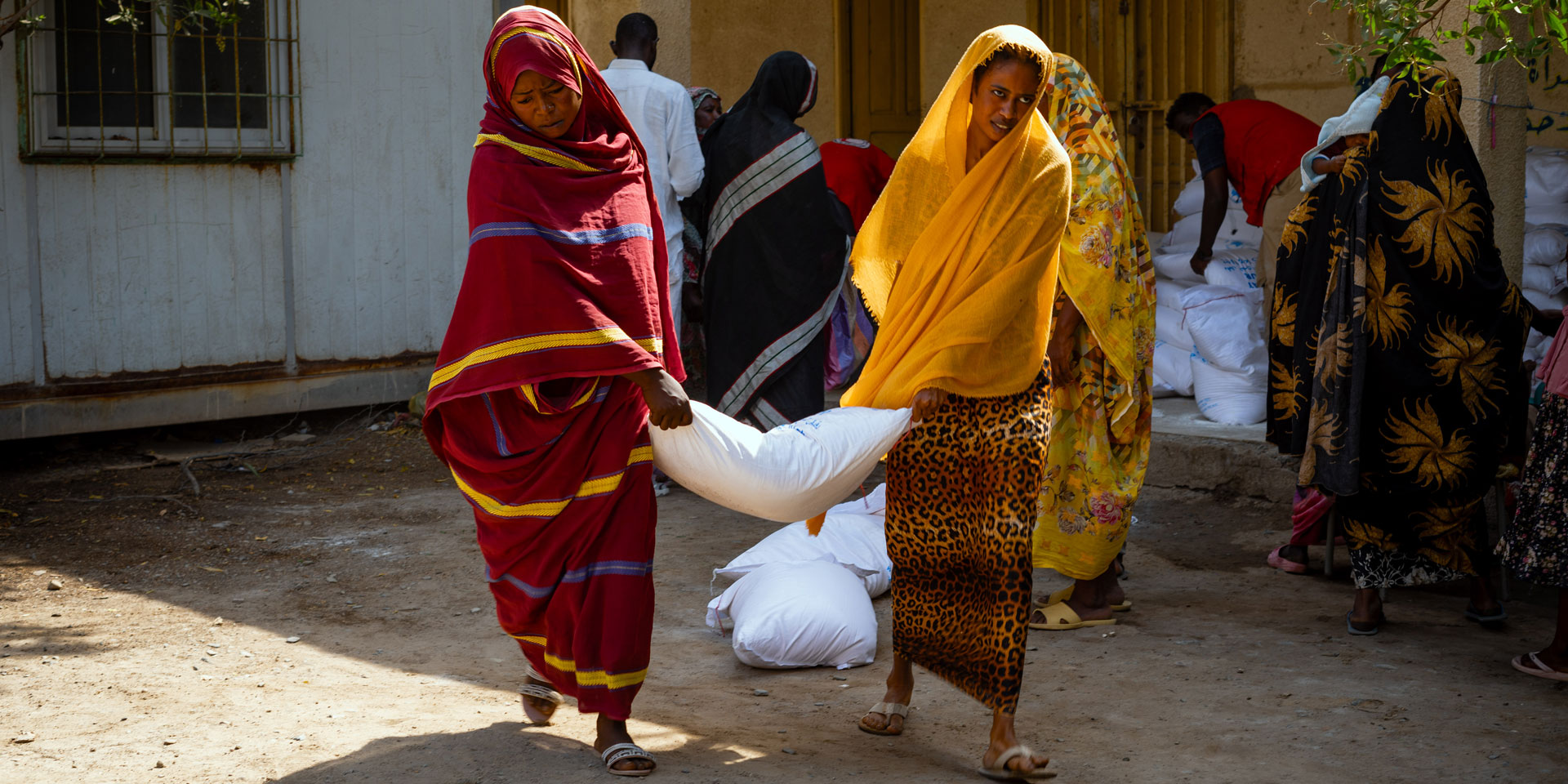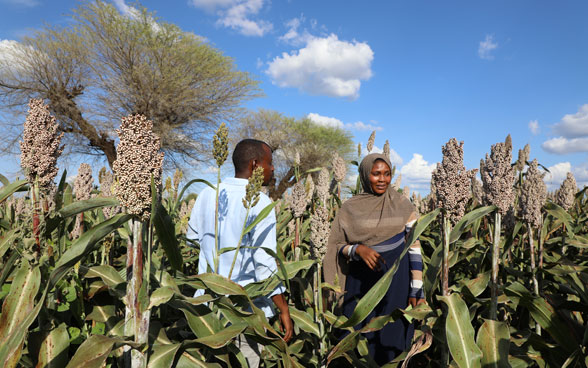The conflict, which began in April 2023, has plunged Sudan into one of its gravest humanitarian crises in recent history. It has worsened an already dire humanitarian situation, especially in the states of Khartoum, Darfur and Kordofan, pushing humanitarian needs to unprecedented levels across the country. The United Nations reports that in 2024, 24.8 million people, or one in every two inhabitants, will need humanitarian aid. This figure is three times the population of Switzerland and nine million more than in 2023.
Vulnerable communities lack access to essential goods and services, including food, water, shelter, electricity, education, healthcare and nutrition. People are left to fend for themselves, with few resources to ensure their physical and psychological well-being. Incidents of rape, sexual violence and abuse have surged since the crisis began, putting millions of women and girls at increased risk of violence.
Mass population displacement
Before the conflict began, Sudan was home to approximately 3.8 million internally displaced persons, a majority of whom were in the Darfur region, where the security situation has been unstable for nearly two decades. The current crisis has rekindled dormant inter-ethnic tensions, leading to further displacements.
Sudan also hosted over a million refugees from neighbouring countries, including more than 800,000 South Sudanese nationals, as well as individuals from Eritrea and Ethiopia. Many have returned to their countries of origin. By the end of January 2024, over 1.7 million people had crossed the border into Egypt, Chad and South Sudan – countries that are themselves grappling with significant humanitarian, security, and climatic challenges.
Increased, flexible and regional commitment
Having been active in Sudan for many years, the SDC has managed its operations remotely since the temporary closure of the Swiss embassy in Khartoum at the end of April 2023, owing to ongoing fighting in the capital. This situation has not hindered the SDC from dedicating additional resources to meet the growing needs in Sudan and the affected neighbouring countries.
In 2023, Switzerland earmarked almost CHF 64 million, allocating one-third for humanitarian activities in Sudan and two-thirds in the neighbouring countries impacted by the conflict. The SDC has made budget reallocations and, together with its partners, has demonstrated flexibility by reprogramming some activities to provide more resources for the humanitarian response.


